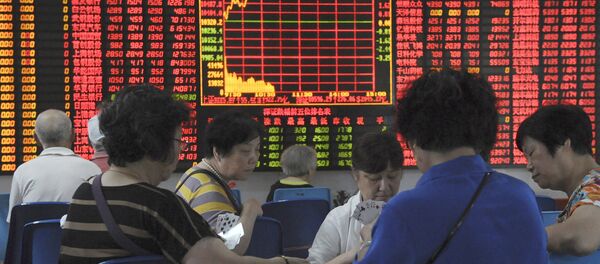The PBOC plans to start selling short-term renminbi-denominated bonds ‘in the near future'. This is potentially a win-win deal for both the UK and mainland China. The former aims to extract commercial benefits from the increased scope of currency swaps and overall trading in the City of London, while the latter hopes to further promote the ongoing internationalization of the renminbi, while also increasing their scope of borrowing, thus providing a partial solution to the current lack of onshore investment.
The deal was negotiated between the UK Chancellor George Osborne and mainland China's Deputy Premier Ma Kai on 21 September. Dim sum bonds have been mainland China's staple of offshore renminbi trading since 2007, and are currently traded in London by a commercial bank, China Construction, as well as several other banks, including Australia and New Zealand Banking Group, HSBC and Banco do Brazil.
Meanwhile, there are several complications to the planned PBOC dim sum trading in London. First, as dim sum bonds are essentially debt securities, the ongoing slowdown of the mainland's economy and the sudden renminbi devaluation essentially lowered the demand for the Chinese bonds among investors in August. Dim sum bonds declined some 5.7% in price since the renminbi devaluation, while short-term borrowing for the Chinese banks appreciated 20% in Hong Kong amidst the renminbi shortage in offshore markets.
In other words, commercial Chinese banks are suffering from a severe lack of monetary liquidity due to China's FX risks — international investors are simply too scared to buy into renminbi-denominated debt after the sudden devaluation and other indications of economic turmoil in China. The PBOC's initiative to trade dim sum bonds in London can therefore be seen as more of a necessity for Beijing, whilst Westminster views the entire deal as an ordinary business opportunity.
The second implication is that, while a more stable renminbi FX rate is a factor spurring demand for dim sum bonds, the anticipations of the Chinese currency to further depreciate against the US dollar are effectively holding down the demand for renminbi-denominated debt. Moreover, as Beijing hopes to promote the internationalization of its currency at the expense of further increasing its debt burden, significant risks to mainland China's financial stability might emerge. That said, while the benefits of the renminbi internationalization might turn out to the only modest, the costs of increasing debts might prove too expensive for mainland China.



